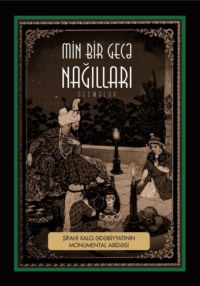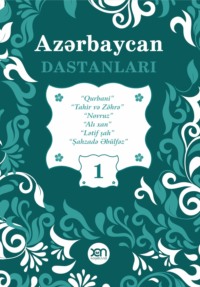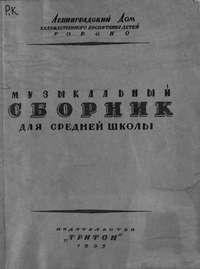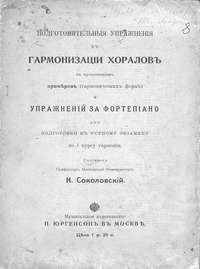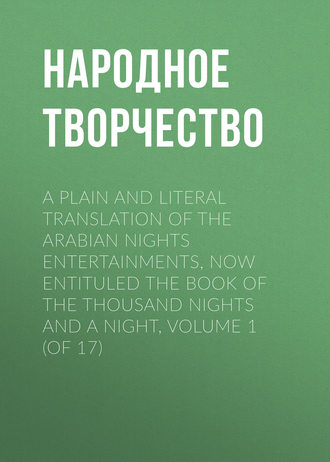 полная версия
полная версияA plain and literal translation of the Arabian nights entertainments, now entituled The Book of the Thousand Nights and a Night, Volume 1 (of 17)
Arab. "Usfur" the seeds of Carthamus tinctorius=Safflower (Forskål, Flora, etc. lv.). The seeds are crushed for oil and the flowers, which must be gathered by virgins or the colour will fail, are extensively used for dyeing in Southern Arabia and Eastern Africa.
417
On such occasions Miss Modesty shuts her eyes and looks as if about to faint.
418
After either evacuation the Moslem is bound to wash or sand the part; first however he should apply three pebbles, or potsherds or clods of earth. Hence the allusion in the Koran (chapt. ix.), "men who love to be purified." When the Prophet was questioning the men of Kuba, where he founded a mosque (Pilgrimage ii., 215), he asked them about their legal ablutions, especially after evacuation; and they told him that they used three stones before washing. Moslems and Hindus (who prefer water mixed with earth) abhor the unclean and unhealthy use of paper without ablution; and the people of India call Europeans draught-houses, by way of opprobrium, "Kághaz-khánah"=paper closets. Most old Anglo-Indians, however, learn to use water.
419
"Miao" or "Mau" is the generic name of the cat in the Egyptian of the hieroglyphs.
420
Arab. "Ya Mash'úm" addressed to an evil spirit.
421
"Heehaw!" as we should say. The Bresl. Edit. makes the cat cry "Nauh! Nauh!" and the ass-colt "Manu! Manu!" I leave these onomatopoeics as they are in Arabic; they are curious, showing the unity in variety of hearing inarticulate sounds. The bird which is called "Whip poor Will" in the U.S., is known to the Brazilians as "Joam corta páo" (John cut wood); so differently do they hear the same notes.
422
It is usually a slab of marble with a long slit in front and a round hole behind. The text speaks of a Kursi (=stool); but this is now unknown to native houses which have not adopted European fashions.
423
This again is chaff as she addresses the Hunchback. The Bul. Edit. has "O Abu Shiháb" (Father of the shooting-star=evil spirit); the Bresl. Edit. "O son of a heap! O son of a Something!" (al-Aísh, a vulgarism).
424
As the reader will see, Arab ideas of "fun" and practical jokes are of the largest, putting the Hibernian to utter rout, and comparing favourably with those recorded in Don Quixote.
425
Arab. "Saráwil" a corruption of the Pers. "Sharwál"; popularly called "libás" which, however, may also mean clothing in general and especially outer-clothing. I translate "bag-trousers" and "petticoat-trousers," the latter being the divided skirt of our future. In the East, where Common Sense, not Fashion, rules dress, men, who have a protuberance to be concealed, wear petticoats and women wear trousers. The feminine article is mostly baggy but sometimes, as in India, collant-tight. A quasi-sacred part of it is the inkle, tape or string, often a most magnificent affair, with tassels of pearl and precious stones; and "laxity in the trouser-string" is equivalent to the loosest conduct. Upon the subject of "libás," "sarwál" and its variants the curious reader will consult Dr. Dozy's "Dictionnaire Détaillé des Noms des Vêtements chez les Arabes," a most valuable work.
426
The turban out of respect is not put upon the ground (Lane, M. E., chapt. i.).
427
Arab. "Madfa'" showing the modern date or the modernization of the tale. In Lebid "Madáfi'" (plur. of Madfa') means water-courses or leats.
428
In Arab, the "he" is a "she;" and Habíb ("friend") is the Attic φίλος, a euphemism for lover. This will occur throughout The Nights. So the Arabs use a phrase corresponding with the Stoic φιλε~ι i. e. is wont, is fain.
429
Part of the Azán, or call to prayer.
430
Arab. "Shiháb," these meteors being the flying shafts shot at evil spirits who approach too near Heaven. The idea doubtless arose from the showers of August and November meteors (The Perseides and Taurides) which suggest a battle raging in upper air. Christendom also has its superstition concerning them and called those of August the "fiery tears of Saint Lawrence," whose festival was on August 10.
431
Arab. "Tákiyah"=Pers. Arak-chin; the calotte worn under the Fez. It is, I have said, now obsolete and the red woollen cap (mostly made in Europe) is worn over the hair; an unclean practice.
432
Often the effect of cold air after a heated room.
433
i. e. He was not a Eunuch, as the people guessed.
434
In Arab, "this night" for the reason before given.
435
Meaning especially the drink prepared of the young leaves and florets of Cannabis Sativa. The word literally means "dry grass" or "herbage." This intoxicant was much used by magicians to produce ecstacy and thus to "deify themselves and receive the homage of the genii and spirits of nature."
436
Torrens, being an Irishman, translates "and woke in the morning sleeping at Damascus."
437
Arab. "Labbayka," the cry technically called "Talbiyah" and used by those entering Meccah (Pilgrimage iii. 125-232). I shall also translate it by "Adsum." The full cry is: —
Here am I, O Allah, here am I!No partner hast Thou, here am I:Verily the praise and the grace and the kingdom are thine:No partner hast Thou: here am I!A single Talbiyah is a "Shart" or positive condition: and its repetition is a Sunnat or Custom of the Prophet. See Night xci.
438
The staple abuse of the vulgar is cursing parents and relatives, especially feminine, with specific allusions to their "shame." And when dames of high degree are angry, Nature, in the East as in the West, sometimes speaks out clearly enough, despite Mistress Chapone and all artificial restrictions.
439
A great beauty in Arabia and the reverse in Denmark, Germany and Slav-land, where it is a sign of being a were-wolf or a vampire. In Greece also it denotes a "Brukolak" or vampire.
440
This is not physiologically true: a bride rarely conceives the first night, and certainly would not know that she had conceived. Moreover the number of courses furnished by the bridegroom would be against conception. It is popularly said that a young couple often undoes in the morning what it has done during the night.
441
Torrens (Notes, xxiv.) quotes "Fleisher" upon the word "Ghamghama" (Diss. Crit. de Glossis Habichtionis), which he compares with "Dumduma" and "Humbuma" determining them to be onomatopoeics, "an incomplete and an obscure murmur of a sentence as it were lingering between the teeth and lips and therefore difficult to be understood." Of this family is "Taghúm"; not used in modern days. In my Pilgrimage (i. 313) I have noticed another, "Khyas, Khyas!" occurring in a Hizb al-Bahr (Spell of the Sea). Herklots gives a host of them; and their sole characteristics are harshness and strangeness of sound, uniting consonants which are not joined in Arabic. The old Egyptians and Chaldeans had many such words composed at will for theurgic operations.
442
This may mean either "it is of Mosul fashion" or, it is of muslin.
443
To the English reader these lines would appear the reverse of apposite; but Orientals have their own ways of application, and all allusions to Badawi partings are effective and affecting. The civilised poets of Arab cities throw the charm of the Desert over their verse by images borrowed from its scenery, the dromedary, the mirage and the well, as naturally as certain of our bards who hated the country, babbled of purling rills, etc. Thoroughly to feel Arabic poetry one must know the Desert (Pilgrimage iii., 63).
444
In those days the Arabs and the Portuguese recorded everything which struck them, as the Chinese and Japanese do in our times. And yet we complain of the amount of our modern writing!
445
This is mentioned because it is the act preliminary to naming the babe.
446
Arab. "Kahramánát" from Kahramán, an old Persian hero who conversed with the Simurgh-Griffon. Usually the word is applied to women-at-arms who defend the Harem, like the Urdu-begani of India, whose services were lately offered to England (1885), or the "Amazons" of Dahome.
447
Meaning he grew as fast in one day as other children in a month.
448
Arab. Al-Aríf; the tutor, the assistant-master.
449
Arab. "Ibn harám," a common term of abuse; and not a factual reflection on the parent. I have heard a mother apply the term to her own son.
450
Arab. "Khanjar" from the Persian, a syn. with the Arab. "Jambiyah." It is noticed in my Pilgrimage iii., pp. 72, 75. To "silver the dagger," means to become a rich man. From "Khanjar," not from its fringed loop or strap, I derive our silly word "hanger." Dr. Steingass would connect it with Germ. Fänger, e. g., Hirschfänger.
451
Again we have "Dastur" for "Izn."
452
Arab. "Iklím"; the seven climates of Ptolemy.
453
Arab. "Al-Ghadir," lit. a place where water sinks, a lowland: here the drainage-lakes east of Damascus into which the Baradah (Abana?) discharges. The higher eastern plain is "Al-Ghutah" before noticed.
454
The "Plain of Pebbles" still so termed at Damascus; an open space west of the city.
455
Every Guide-book, even the Reverend Porter's "Murray," gives a long account of this Christian Church 'verted to a Mosque.
456
Arab. "Nabút"; Pilgrimage i. 336.
457
The Bres. Edit. says, "would have knocked him into Al-Yaman" (Southern Arabia) something like our slang phrase "into the middle of next week."
458
Arab. "Khádim": lit. a servant, politely applied (like Aghá=master) to a castrato. These gentry wax furious if baldly called "Tawáshi"=Eunuch. A mauvais plaisant in Egypt used to call me The Agha because a friend had placed his wife under my charge.
459
This sounds absurd enough in English, but Easterns always put themselves first for respect.
460
In Arabic the World is feminine.
461
Arab. "Sáhib"=lit. a companion; also a friend and especially applied to the Companions of Mohammed. Hence the Sunnis claim for them the honour of "friendship" with the Apostle; but the Shia'hs reply that the Arab says "Sahaba-hu'l-himár" (the Ass was his Sahib or companion). In the text it is a Wazirial title, in modern India it is=gentleman, e. g. "Sahib log" (the Sahib people) means their white conquerors, who, by the by, mostly mispronounce the word "Sáb."
462
Arab. "Suwán," prop. Syenite, from Syene (Al-Suwan) but applied to flint and any hard stone.
463
It was famous in the middle ages, and even now it is, perhaps, the most interesting to travellers after that "Sentina Gentium," the "Bhendi Bazar" of unromantic Bombay.
464
"The Gate of the Gardens," in the northern wall, a Roman archway of the usual solid construction shaming not only our modern shams, but our finest masonry.
465
Arab. "Al-Asr," which may mean either the hour or the prayer. It is also the moment at which the Guardian Angels relieve each other (Sale's Koran, chapt. v.).
466
Arab. "Ya házá"=O this (one)! a somewhat slighting address equivalent to "Heus tu! O thou, whoever thou art." Another form is "Yá hú"=O he! Can this have originated Swift's "Yahoo?"
467
Alluding to the τήρατα ("minor miracles which cause surprise") performed by Saints' tombs, the mildest form of thaumaturgy. One of them gravely recorded in the Dabistan (ii. 226) is that of the holy Jamen, who opened the Sámran or bead-bracelet from the arm of the beautiful Chistápá with member erect, "thus evincing his manly strength and his command over himself"(!)
468
The River of Paradise, a lieu commun of poets (Koran, chapt. cviii.): the water is whiter than milk or silver, sweeter than honey, smoother than cream, more odorous than musk; its banks are of chrysolite and it is drunk out of silver cups set around it thick as stars. Two pipes conduct it to the Prophet's Pond which is an exact square, one month's journey in compass. Kausar is spirituous like wine; Salsabil sweet like clarified honey; the Fount of Mildness is like milk and the Fount of Mercy like liquid crystal.
469
The Moslem does not use the European basin because water which has touched an impure skin becomes impure. Hence it is poured out from a ewer ("ibrík" Pers. Abríz) upon the hands and falls into a basin ("tisht") with an open-worked cover.
470
Arab. "Wahsh," a word of many meanings; nasty, insipid, savage, etc. The offside of a horse is called Wahshi opposed to Insi, the near side. The Amir Taymur ("Lord Iron") whom Europeans unwittingly call after his Persian enemies' nickname, "Tamerlane," i. e. Taymur-i-lang, or limping Taymur, is still known as "Al-Wahsh" (the wild beast) at Damascus, where his Tartars used to bury men up to their necks and play at bowls with their heads for ninepins.
471
For "grandson" as being more affectionate. Easterns have not yet learned that clever Western saying: – The enemies of our enemies are our friends.
472
This was a simple bastinado on the back, not the more ceremonious affair of beating the feet-soles. But it is surprising what the Egyptians can bear; some of the rods used in the time of the Mameluke Beys are nearly as thick as a man's wrist.
473
The woman-like spite of the eunuch intended to hurt the grandmother's feelings.
474
The usual Cairene "chaff."
475
A necessary precaution against poison (Pilgrimage i. 84, and iii. 43).
476
The Bresl. Edit. (ii. 108) describes the scene at greater length.
477
The Bul. Edit. gives by mistake of diacritical points, "Zabdaniyah: " Raydaniyah is or rather was a camping ground to the North of Cairo.
478
Arab. "La'abat"=a plaything, a puppet, a lay figure. Lane (i. 326) conjectures that the cross is so called because it resembles a man with arms extended. But Moslems never heard of the fanciful ideas of mediæval Christian divines who saw the cross everywhere and in everything. The former hold that Pharaoh invented the painful and ignominious punishment. (Koran, chapt. vii.)
479
Here good blood, driven to bay, speaks out boldly. But, as a rule the humblest and mildest Eastern when in despair turns round upon his oppressors like a wild cat. Some of the criminals whom Fath Ali Shah of Persia put to death by chopping down the fork, beginning at the scrotum, abused his mother till the knife reached their vitals and they could no longer speak.
480
These repeated "laughs" prove the trouble of his spirit. Noble Arabs "show their back-teeth" so rarely that their laughter is held worthy of being recorded by their biographers.
481
A popular phrase, derived from the Koranic "Truth is come, and falsehood is vanished: for falsehood is of short continuance" (chapt. xvii.). It is an equivalent of our adaptation from 1 Esdras iv. 41, "Magna est veritas et prævalebit." But the great question still remains, What is Truth?
482
In Night lxxv. these lines will occur with variants.
483
This is always mentioned: the nearer the seat the higher the honour.
484
Alluding to the phrase "Al-safar zafar"=voyaging is victory (Pilgrimage i., 127).
485
Arab. "Habb;" alluding to the black drop in the human heart which the Archangel Gabriel removed from Mohammed by opening his breast.
486
This phrase, I have said, often occurs: it alludes to the horripilation (Arab. Kush'arírah), horror or gooseflesh which, in Arab as in Hindu fables, is a symptom of great joy. So Boccaccio's "pelo arriciato" v., 8: Germ. Gänsehaut.
487
Arab. "Hasanta ya Hasan"=Bene detto, Benedetto! the usual word-play vulgarly called "pun: " Hasan (not Hassan, as we will write it) meaning "beautiful."
488
Arab. "Loghah" also=a vocabulary, a dictionary; the Arabs had them by camel-loads.
489
The seventh of the sixteen "Bahr" (metres) in Arabic prosody; the easiest because allowing the most licence and, consequently, a favourite for didactic, homiletic and gnomic themes. It means literally "agitated" and was originally applied to the rude song of the Cameleer. De Sacy calls this doggrel "the poet's ass" (Torrens, Notes xxvi.). It was the only metre in which Mohammed the Apostle ever spoke: he was no poet (Koran xxxvi., 69) but he occasionally recited a verse and recited it wrongly (Dabistan iii., 212). In Persian prosody Rajaz is the seventh of nineteen and has six distinct varieties (pp. 79-81, "Gladwin's Dissertations on Rhetoric," etc. Calcutta, 1801). I shall have more to say about it in the terminal Essay.
490
"Her stature tall – I hate a dumpy woman" (Don Juan).
491
A worthy who was Kazi of Kufah (Cufa) in the seventh century. Al-Najaf, generally entitled "Najaf al-Ashraf" (the Venerand) is the place where Ali, the son-in-law of Mohammed, lies or is supposed to lie buried, and has ever been a holy place to the Shi'ahs. I am not certain whether to translate "Sa'alab" by fox or jackal; the Arabs make scant distinction between them. "Abu Hosayn" (Father of the Fortlet) is certainly the fox, and as certainly "Sha'arhar" is the jackal from the Pehlevi Shagál or Shaghál.
492
Usually by all manner of extortions and robbery, corruption and bribery, the ruler's motto being
Fiat injustitia ruat Cœlum.
There is no more honest man than the Turkish peasant or the private soldier; but the process of deterioration begins when he is made a corporal and culminates in the Pasha. Moreover official dishonesty is permitted by public opinion, because it belongs to the condition of society. A man buys a place (as in England two centuries ago) and retains it by presents to the heads of offices. Consequently he must recoup himself in some way, and he mostly does so by grinding the faces of the poor and by spoiling the widow and the orphan. The radical cure is high pay; but that phase of society refuses to afford it.
493
Arab. "Malik" (King) and "Malak" (angel) the words being written the same when lacking vowels and justifying the jingle.
494
Arab. "Hurr"; the Latin "ingenuus," lit. freeborn; metaph. noble as opp. to a slave who is not expected to do great or good deeds. In pop. use it corresponds, like "Fatá," with our "gentleman."
495
This is one of the best tales for humour and movement, and Douce and Madden show what a rich crop of fabliaux, whose leading incident was the disposal of a dead body, it produced.
496
Other editions read, "at Bassorah" and the Bresl. (ii. 123) "at Bassorah and Kájkár" (Káshghár): somewhat like in Dover and Sebastopol. I prefer China because further off and making the improbabilities more notable.
497
Arab. "Judri," lit. "small stones" from the hard gravelly feeling of the pustules (Rodwell, p. 20). The disease is generally supposed to be the growth of Central Africa where it is still a plague and passed over to Arabia about the birth-time of Mohammed. Thus is usually explained the "war of the elephant" (Koran, chapt. cv.) when the Abyssinian army of Abrahah, the Christian, was destroyed by swallows (Abábíl which Major Price makes the plural of Abilah=a vesicle) which dropped upon them "stones of baked clay," like vetches (Pilgrimage ii. 175). See for details Sale (in loco) who seems to accept the miraculous defence of the Ka'abah. For the horrors of small-pox in Central Intertropical Africa the inoculation, known also to the Badawin of Al-Hijáz and other details, readers will consult "The Lake Regions of Central Africa" (ii. 318). The Hindus "take the bull by the horns" and boldly make "Sítlá" (small-pox) a goddess, an incarnation of Bhawáni, deëss of destruction-reproduction. In China small pox is believed to date from B.C. 1200; but the chronology of the Middle Kingdom still awaits the sceptic.
498
In Europe we should add "and all fled, especially the women." But the fatalism inherent in the Eastern mind makes the great difference.
499
Arab. "Uzayr." Esdras was a manner of Ripp van Winkle. He was riding over the ruins of Jerusalem when it had been destroyed by the Chaldeans and he doubted by what means Allah would restore it; whereupon he died and at the end of a hundred years he revived. He found his basket of figs and cruse of wine as they were; but of his ass only the bones remained. These were raised to life as Ezra looked on and the ass began at once to bray. Which was a lesson to Esdras. (Koran, chapt. ii). The oath by the ass's hoofs is to ridicule the Jew. Mohammed seems to have had an idée fixe that "the Jews say, Ezra is the son of God" (Koran ix.); it may have arisen from the heterodox Jewish belief that Ezra, when the Law was utterly lost, dictated the whole anew to the scribes of his own memory. His tomb with the huge green dome is still visited by the Jews of Baghdad.
500
Arab. "Bádhanj," the Pers. Bád (wind) – gír (catcher): a wooden pent-house on the terrace-roof universal in the nearer East.
501
The hunchback, in Arabia as in Southern Europe, is looked upon by the vulgar with fear and aversion: The reason is that he is usually sharper-witted than his neighbours.
502
Arab. "Yá Sattár"=Thou who veilest the discreditable secrets of Thy creatures.
503
Arab. "Nasráni," a follower of Him of Nazareth and an older name than "Christian" which (Acts xi., 26) was first given at Antioch about A.D. 43. The cry in Alexandria used to be "Ya Nasráni, Kalb awáni!"=O Nazarene! O dog obscene! (Pilgrimage, 1., 160). "Christian" in Arabic can be expressed only by "Masíhi"=follower of the Messiah.
504
Arab. "Tasbíh,"=Saluting in the Subh (morning).
505
In the East women stand on minor occasions while men squat on their hunkers in a way hardly possible to an untrained European. The custom is old. Herodotus (ii., 35) says, "The women stand up when they make water, but the men sit down." Will it be believed that Canon Rawlinson was too modest to leave this passage in his translation? The custom was perpetuated by Al-Islam because the position prevents the ejection touching the clothes and making them ceremonially impure; possibly they borrowed it from the Guebres. Dabistan, Gate xvi. says, "It is improper, whilst in an erect posture, to make water; it is therefore necessary to sit at squat and force it to some distance, repeating the Avesta mentally."


